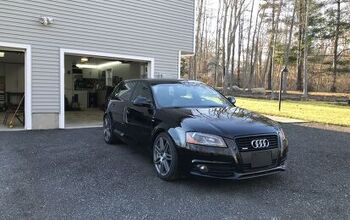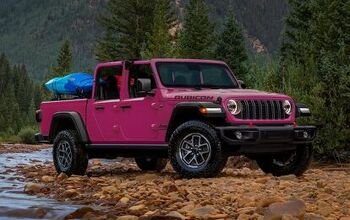Tesla, Michigan Finally Reach a Truce

A long-standing legal battle pitting Tesla against the state of Michigan has finally been resolved. It was announced Wednesday that the automaker’s 2016 suit against the state, which forbids the direct-sales model employed by Tesla, ended in a settlement a day earlier.
The result? A way for Michigan residents to own and conveniently service a Tesla in the notoriously protectionist state.
Michigan law stipulated that new vehicles could only be sold to consumers through the age-old dealer model that cushioned its auto industry from modern threats. Upstarts like Tesla eschewed such a model for obvious financial reasons.
Tesla’s lawsuit resulted in a resolution filed in U.S. District Court that will make ownership of its vehicles a lot easier.
From Reuters:
The stipulation also says Tesla may “operate under existing Michigan law; sell cars to Michigan customers as long as the sales contract indicates the sale took place in a state other than Michigan; and, indirectly own service and repair facilities in Michigan through a subsidiary, Tesla Michigan.”
Under the settlement, Tesla can open galleries to inform potential customers about their vehicles, arrange demonstration drives, and carry out “ordering and purchase of a vehicle for which legal title transfers out-of-state.”
As a lack of nearby service facilities serves as a major roadblock to ownership, Tesla has long sought to open such centers in Michigan. The advent of the popular Model 3 only increased its desire to penetrate the market. Before now, owners living in the mitten had to drive to Ohio for servicing; the recent creation of a center in Toledo, while closer than Cleveland, still represented an inconvenient haul. If the car was disabled, it made the trip even more loathsome.
And this will remain the case until Tesla Michigan gets service centers off the ground. Ohio, of course, will remain the point of sale for most Michiganders.
[Image: JL IMAGES/Shutterstock]

More by Steph Willems
Latest Car Reviews
Read moreLatest Product Reviews
Read moreRecent Comments
- Jeff One less option will be available for an affordable midsize sedan. Not much can be done about GM discontinuing the Malibu. GM, Ford, and Stellantis have been discontinuing cars for the most part to focus on pickups, crossovers, and suvs. Many buyers that don't want trucks or truck like vehicles have moved onto Japanese and South Korean brands. Meanwhile large pickups and suvs continue to pile up on dealer lots with some dealers still adding market adjustments to the stickers. Even Toyota dealers have growing inventories of Tundras and Tacomas.
- Lorenzo This car would have sold better if there was a kit to put fiberglass toast slices on the roof.
- Lorenzo The Malibu is close to what the 1955 Bel Air was, but 6 inches shorter in height, and 3 inches shorter in wheelbase, the former making it much more difficult to get into or out of. Grandma has to sit in front (groan) and she'll still have trouble getting in and out.The '55s had long options lists, but didn't include a 91 cubic inch four with a turbo, or a continuously variable transmission. Metal and decent fabric were replaced by cheap plastic too. The 1955 price was $1765 base, or $20,600 adjusted for inflation, but could be optioned up to $3,000 +/-, or $36,000, so in the same ballpark.The fuel economy, handling, and reliability are improved, but that's about it. Other than the fact that it means one fewer sedan available, there's no reason to be sorry it's being discontinued. Put the 1955 body on it and it'll sell like hotcakes, though.
- Calrson Fan We are already seeing multiple manufacturers steering away from EVs to Hybrids & PHEVs. Suspect the market will follow. Battery tech isn't anywhere close to where it needs to be for EV's to replace ICE's. Neither is the electrical grid or charging infrastructure. PHEV's still have the drawback that if you can't charge at home your not a potential customer. I've heard stories of people with Volts that never charge them but that's a unique kind of stupidity. If you can't or don't want to charge your PHEV then just get a hybrid.
- AZFelix The last time I missed the Malibu was when one swerved into my lane and I had to brake hard to avoid a collision. 1 out of 5⭐️. Do not recommend.


































Comments
Join the conversation
"sell cars to Michigan customers as long as the sales contract indicates the sale took place in a state other than Michigan" These carefully crafted words tell me that Michigan's Tesla store will legally be an arm of another state's Tesla store, somewhat like the way an embassy operates. So the paperwork you sign on Michigan soil might say "Tesla of Ohio" as the seller. I can't imagine anyone has to make a special trip to make this work, or else the agreement is valueless. Sales tax always is calculated for the buyer's home address, not the point of sale, and it can even vary by county within the same state. I've done this several times, and it's not complicated. Dealers are equipped to handle the paperwork of neighboring states.
I see Teslas here on the west side of Michigan... but the lack of a dealership and/or nearby service center has stopped me from looking at their cars. Of course I would only want to buy the most stripped down Model 3, even though I'm not a huge fan of the duck face.